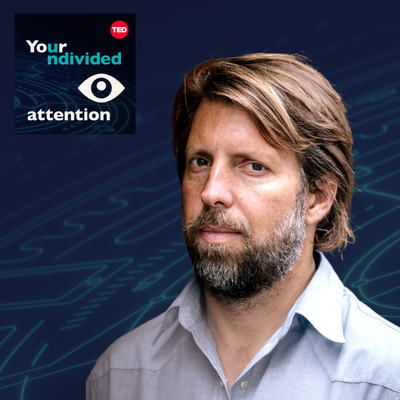Episode 38 | Jul 22, 2021
You Will Never Breathe The Same Again. Guest: James Nestor
When author and journalist James Nestor began researching a piece on free diving, he was stunned. He found that free divers could hold their breath for up to 8 minutes at a time, and dive to depths of 350 feet on a single breath. As he dug into the history of breath, he discovered that our industrialized lives have led to improper and mindless breathing, with cascading consequences from sleep apnea to reduced mobility. He also discovered an entire world of extraordinary feats achieved through proper and mindful breathing — including healing scoliosis, rejuvenating organs, halting snoring, and even enabling greater sovereignty in our use of technology. What is the transformative potential of breath? And what is the relationship between proper breathing and humane technology?
Major Takeaways
Breathing and technology both have a ‘root cause’ aspect: improper breathing leads to a host of downstream problems such as asthma, diabetes, sleep apnea, and memory impairment, which seem unrelated without an understanding of root cause. Similarly, 'anti-humane' technology leads to crises in mental health, extremism, polarization, and more, which similarly seem unrelated without an accurate diagnosis of root cause.
Breath is a fundamental aspect of human health. In the words of James Nestor, "no matter what you eat, how much you exercise, how skinny or young or wise you are, none of it matters if you’re not breathing properly."
Improper breathing has the potential to harm, while mindful breathing has tremendous potential to heal.
Today’s technology is negligent to our somatic nervous system and parasympathetic processes. What we would call humane technology, however, understands human vulnerabilities and designs for whole person flourishing. What would tech look like if it paid attention to whether we’re breathing well?
What would tech look like if it paid attention to whether we’re breathing well?
Improper breathing is tied to increased stress and reduced sense-making. Improper breathing leads to stress, making us more susceptible to doom scrolling and staying online longer than we’d like. Meanwhile, proper and mindful breathing can give us greater sovereignty in our use of technology.
Other recommended reading
Breath: The New Science of a Lost Art
James Nestor's book chronicling the history and transformative potential of breath
James Nestor's website
The author's website, which includes guided breathing videos, breath FAQ’s, and a link to a Breath Facebook group
Insight Timer
A free meditation app and online community featuring guided meditations, music and talks posted by contributing experts
